The Keys to WhatsApp’s Whirlwind Success
Produits iconiques épisode 005
WhatsApp has had a unique, and somewhat unlikely, rise to mobile messenger fame. 🚀
Founded in 2009 and famously acquired by Facebook in 2014 for $19 billion, WhatsApp boasts more than 1.5 billion monthly active users worldwide (as of December 2017) — making it far and away the most widely used mobile messenger app in the world.
Even Facebook CEO Mark Zuckerberg once said on a conference call in regards to WhatsApp’s growth, “No one in the history of the world has done anything like that.”
Qu'est-ce qui rend WhatsApp si spécial ? Qu'est-ce qui, dans ce produit, a contribué à sa grande popularité ?
Let’s explore further! 🕵
WhatsApp builds a product, not a company
The idea for WhatsApp stemmed from co-founder Jan Koum’s annoyance of missing phone calls at the gym. Because of this, he and co-founder Brian Acton then decided to build an app that could let their friends know of their “status” when they were unavailable.
As Koum once explained it, “We didn’t set out to build a company. We just wanted to build a product that people used.”
The beauty of WhatsApp is its single-minded product focus. It’s a simple platform that is well-built and reliable, all while maintaining the privacy of the users. 🔐
WhatsApp’s priority from early on was to create a clean, lightning fast communications service that works flawlessly.
Although the app didn’t take off right away, they later added the messaging aspect of the product and it started to gain traction.
And gain traction it did: it’s estimated that more than 1 million new users join WhatsApp and 55 billion messages are sent on the platform every day. 😱
En outre, les utilisateurs partagent chaque jour 4,5 milliards de photos et un milliard de vidéos.

Contrairement à la plupart des startups, cette croissance a été réalisée sans aucun marketing. Et malgré ces chiffres fous, WhatsApp fonctionne toujours avec moins de 100 employés (à l'exception des ressources que Facebook leur alloue désormais).
From day one, WhatsApp has focused on making the best messaging app possible — every feature and improvement that has followed has been with this goal in mind.
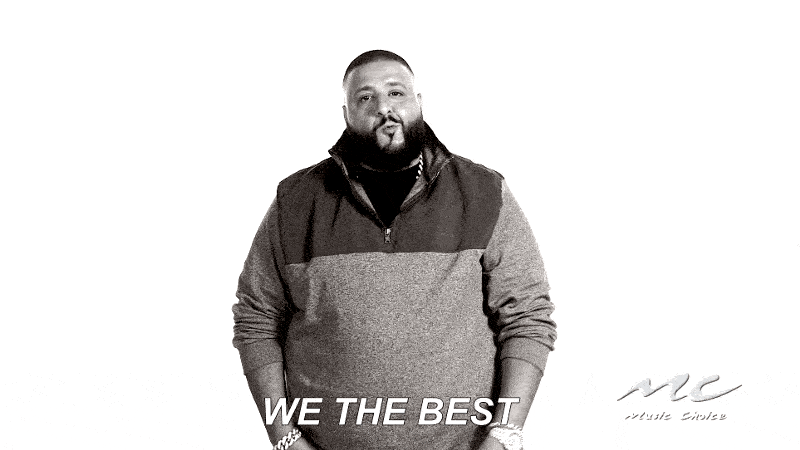
As Koum once pointed out, “WhatsApp’s extremely high user engagement and rapid growth are driven by the simple, powerful and instantaneous messaging capabilities we provide.”
The co-founders also haven’t been ones for fame and attention. Koum and Acton wanted a different company from the beginning — they didn’t even have a sign outside their office door.
In an interview with Wired, Acton said, “We’re the most atypical Silicon Valley company you’ll come across. We were founded by thirtysomethings; we focused on business sustainability and revenue rather than getting big fast; we’ve been incognito almost all the time; we’re mobile first; and we’re global first.” 🌎
Une expérience sans publicité
As WhatsApp does not store users’ messages and uses end-to-end encryption, it has never placed advertisements within the interface.
Il y a plusieurs raisons à cela.
First, they didn’t want to make the user the product. They wanted to build a service that people wanted to use because it worked. They didn’t want to take user data and turn it into targeted ads.
As they don’t store messages in order to maintain the privacy of the user, they negate the ability for companies to pay for targeted ads on the platform (this is true as well vice versa).
Second, they felt that they didn’t want to have people try to avoid ads in the app.
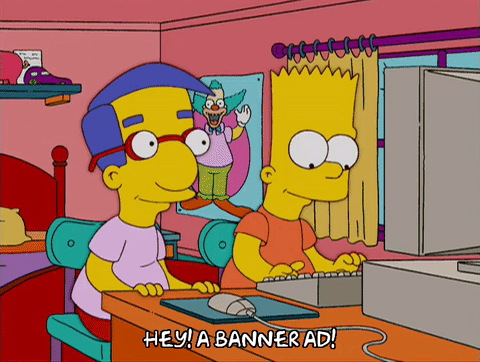
As WhatsApp explained, “Ads suck and ads suck even more on the small screen of a mobile device. We want to provide the best user experience and doing advertising will only get in the way of clean UI.”
They also said on their blog, “No one wakes up excited to see more advertising, no one goes to sleep thinking about the ads they’ll see tomorrow. We know people go to sleep excited about who they chatted with that day…We want WhatsApp to be the product that keeps you awake…and that you reach for in the morning. No one jumps up from a nap and runs to see an advertisement.”
WhatsApp maintient ainsi son objectif d'offrir une expérience utilisateur fiable, sans artifices ni restrictions.
Finally, they figured they could charge a tiny fee directly. Which they did — for a little while, at least. 💵
WhatsApp used to have a 99 cent annual fee, but this was later killed because it wanted to reach more users in places like India and Brazil, as these users don’t necessarily have a credit card or the infrastructure in place to make payments.
While it’s a bit unclear how exactly WhatsApp is making up revenue for the lack of a subscription model, it appears that the shift toward more enterprise uses will have something to do with it (more on that in a minute).
Focus on the product, not tech for tech’s sake
That’s not to say WhatsApp’s tech isn’t great — but it definitely wasn’t an “aha!” moment or some mind-blowing technological breakthrough that created the multi-billion-dollar company.
WhatsApp essentially solved problems by using tools and tech that were already available — not by reinventing the wheel.
So, in a nutshell, the success of the product is defined mostly by the product itself, not the tech — let’s explore a few of the attributes that make the product unique.
First, a major aspect of the product, which seems simple now, is the fact that they built a messenger that connects to contacts from a phonebook. 📲
De nombreuses autres plateformes de messagerie exigent des numéros ou des noms d'utilisateur distincts, ce qui nuit à l'expérience de l'utilisateur. La façon dont WhatsApp a décidé de travailler était révolutionnaire à l'époque.
Second, before WhatsApp, there was the pain point of people not knowing if someone received their message. 🤷
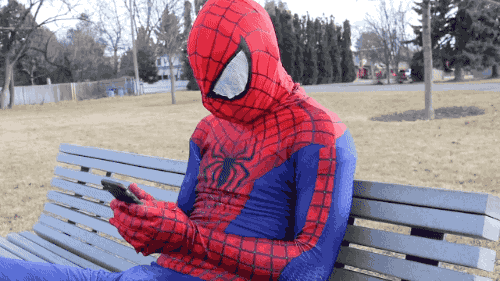
Les SMS peuvent être capricieux, et tout le monde n'est pas devant son ordinateur à tout moment pour recevoir un message Skype. Le fait de disposer d'une plate-forme fonctionnant avec votre téléphone a donc été un atout pour WhatsApp, qui a aidé l'équipe à créer quelque chose de nouveau, d'utile et de fiable.
Troisièmement, WhatsApp a reconnu très tôt que focaliser le produit le rendait encore plus puissant. WhatsApp savait ce que ses clients voulaient et s'y est tenu.
Cela a permis d'éviter la tentation de faire plusieurs choses à la fois et de perdre de vue l'offre principale.
Finally, they’ve understood the importance of immediately setting up everything in a scalable way. Their way of working has stayed virtually the same since the beginning.
Mix these aspects with the fact that they localized to different languages early on — thereby understanding the need to connect with customers globally — and you have a recipe for success. 👩🍳
WhatsApp democratized messaging, calls and video chat
Avant même que WhatsApp ne supprime ses frais d'abonnement de 99 cents, l'entreprise avait proposé à ses utilisateurs une messagerie mobile au prix le plus bas jamais pratiqué.
Comme de nombreux pays font payer les utilisateurs par SMS ou MMS envoyé, WhatsApp était (et est toujours) l'alternative évidente pour envoyer des messages.
Plus tard, l'équipe a ajouté de nouvelles fonctionnalités à la plate-forme de messagerie existante, telles que les chats de groupe, le partage de lieux et la messagerie vocale.
This means that you can call, text or video chat with any other user in the world — for free. 📞
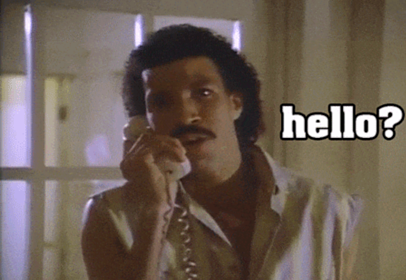
And you didn’t even need to sacrifice your personal data for this free service!
Reliable, Fast, Secure
It’s safe to say that WhatsApp is optimized for reliability — as we touched on earlier, when you send a message on WhatsApp, you know it will get there.
Et le cryptage de bout en bout de tous les messages envoyés, mentionné plus haut, renforce encore sa sécurité.
WhatsApp est également plus rapide que, par exemple, iMessage.
The grey check mark that appears when you send a message in WhatsApp is instantaneous — giving users the feeling of speed compared to the whoosh sound or the loading bar that is part of the iMessage experience…it just feels slower, even if it actually isn’t. ✅

Simply put: WhatsApp’s strengths are its simplicity, performance and service reliability.
De nouveaux cas d'utilisation, des possibilités infinies
WhatsApp has recently found new applications for its product — even in an enterprise context.
En septembre, la société a annoncé qu'elle mettait au point et testait de nouveaux outils pour un produit WhatsApp Business, destiné à la fois aux petites entreprises et à une solution d'entreprise pour les grandes sociétés.
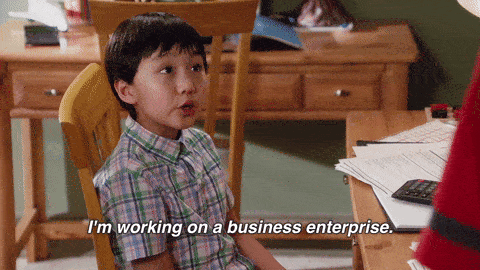
One such example of this in action is from the airline KLM, which now uses WhatsApp as a way to connect with customers regarding flight times, schedule changes and more. ✈
This tool is quite similar to the Messenger services offered through Facebook — so it will be interesting to see if WhatsApp takes off in a similar fashion (especially since this will probably be the route they take to build their revenue model).
Les utilisateurs de WhatsApp ont également commencé à trouver de nouvelles façons d'utiliser l'application. Quelques exemples : des entreprises qui utilisent la fonction de groupe pour la communication au sein de leur équipe, des restaurants locaux qui s'en servent pour commander des livraisons de nourriture et même des entreprises comme Ace & Tate qui gèrent leur service clientèle sur la plateforme.
WhatsApp goes to show that even with a simple product, the uses and possibilities can be endless. 🎉
As WhatsApp continues to grow and connect people globally, we’re excited to see where it’s headed next!
What do you love most (or dislike most) about WhatsApp? Let us know in the comments! ✨
Envie de découvrir d'autres produits emblématiques ? Lisez toute la série ici !
Nous espérons que cet article vous a plu. Si c'est le cas, passez le mot !
Pour en savoir plus sur les startups, le marketing de croissance et les ventes :
- 22+ Best Sales Podcasts You Should Check Out in 2024 - décembre 21, 2023
- Scripts d'appel à froid pour les êtres humains - 21 septembre 2023
- Les 25+ meilleurs outils de vente pour aider votre équipe à réussir - 10 août 2023
